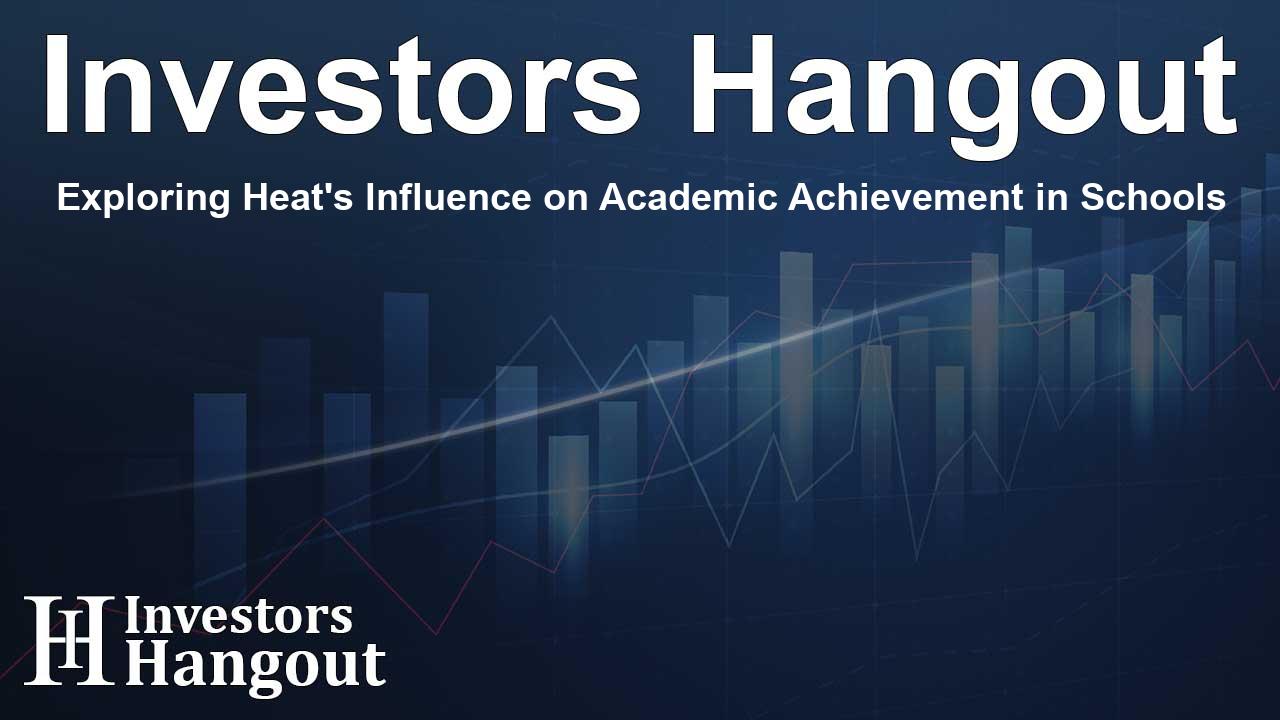Exploring Heat's Influence on Academic Achievement in Schools

Understanding the Effects of Heat on Student Performance
Recent studies reveal that math scores are more adversely affected by high temperatures than reading scores, especially for students in under-resourced schools.
NWEA, an organization dedicated to K-12 assessment and research, has published compelling findings about how environmental heat influences student outcomes in math and reading. This critical research focuses on the disparities faced by students in high-poverty areas where cooling conditions are not as reliable.
The report titled "Hot test days, lower math scores: How heat affects student achievement" leverages a vast dataset from NWEA's MAP Growth assessment, encompassing more than 35,000 schools globally. It examined test scores from grades 3 through 8 across various U.S. regions, analyzing roughly three million tests administered between the falls of three consecutive years.
Main Findings: Math Scores and Heat Correlation
The findings highlight a concerning trend: students' math performance deteriorates under higher temperatures. Specifically, testing environments where day temperatures exceed 80°F correlate with lower MAP Growth math scores. Moreover, even on days where temperatures are merely above average, math scores tend to drop.
Temperature Impacts
Data revealed that:
- When temperatures are between 81°F and 100°F, math scores are about 0.05 standard deviations lower. On days hitting 101°F or more, scores drop by 0.06 standard deviations, which is significant. This decline represents nearly 10% of an average year's learning for a fifth-grader.
- The adverse effects of high temperatures are doubled for students attending high-poverty schools compared to their peers in lower-poverty schools.
Sofia Postell, a research analyst at NWEA, stated, "Extreme heat doesn't affect all students equally. Test days where temperatures rise above 80°F see the sharpest declines in math scores for high-poverty students." This assertion underscores how inequities in school facilities may escalate as climate challenges continue.
Recommendations for Educational Leaders
To mitigate the effects of extreme heat on student performance, the report suggests several actionable strategies for school districts and leaders:
- Adjusting testing schedules to align with favorable weather conditions.
- Identifying testing sites within schools that maintain cooler environments.
- Investing in infrastructure that withstands climatic fluctuations over time.
- Considering educational equity while planning resource allocations and infrastructure improvements.
As schools strive towards equitable educational outcomes, it is essential to address the impact of climate on learning environments.
About NWEA
NWEA, a reputable division working under HMH, strives to enhance education for students and educators worldwide. Their commitment to research and assessment solutions is evident as they serve diverse educational communities in over 146 countries. Understanding more about their initiatives and contributions can be found by visiting their website.
Frequently Asked Questions
What does the NWEA study reveal about temperature and learning?
The study indicates that higher temperatures significantly impact math scores, particularly in high-poverty schools, which face steeper declines.
How much can heat affect a student's math performance?
According to the report, every degree above 80°F can lower math students' performance by approximately 0.05 to 0.06 standard deviations.
Are high-poverty schools more affected by heat than others?
Yes, the study found that high-poverty schools are disproportionately affected by extreme heat compared to their more affluent counterparts.
What recommendations were made for school districts?
The report suggests planning test schedules around weather, selecting cooler testing locations within schools, and investing in durable facilities.
Where can I find more information about NWEA?
More about NWEA's initiatives and resources can be accessed through their official website, where they highlight their commitment to supporting education globally.
About The Author
Contact Evelyn Baker privately here. Or send an email with ATTN: Evelyn Baker as the subject to contact@investorshangout.com.
About Investors Hangout
Investors Hangout is a leading online stock forum for financial discussion and learning, offering a wide range of free tools and resources. It draws in traders of all levels, who exchange market knowledge, investigate trading tactics, and keep an eye on industry developments in real time. Featuring financial articles, stock message boards, quotes, charts, company profiles, and live news updates. Through cooperative learning and a wealth of informational resources, it helps users from novices creating their first portfolios to experts honing their techniques. Join Investors Hangout today: https://investorshangout.com/
The content of this article is based on factual, publicly available information and does not represent legal, financial, or investment advice. Investors Hangout does not offer financial advice, and the author is not a licensed financial advisor. Consult a qualified advisor before making any financial or investment decisions based on this article. This article should not be considered advice to purchase, sell, or hold any securities or other investments. If any of the material provided here is inaccurate, please contact us for corrections.
